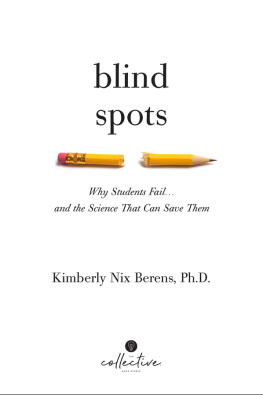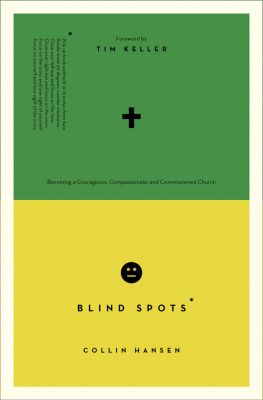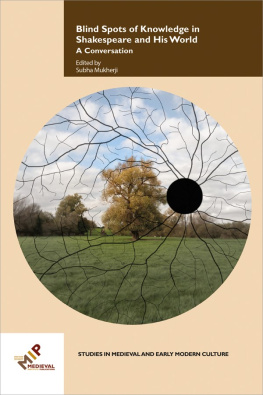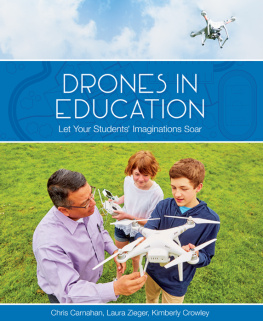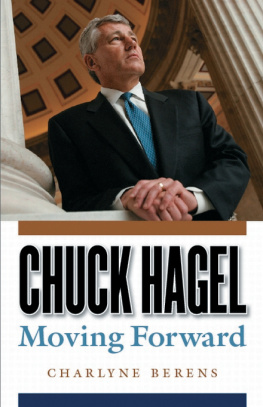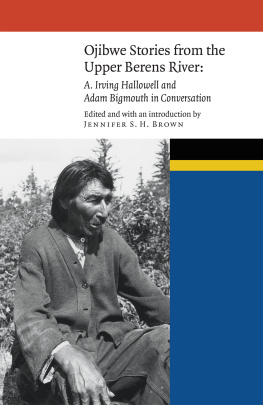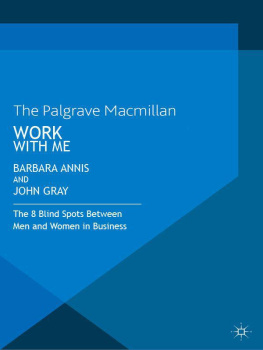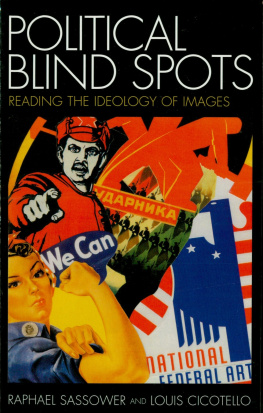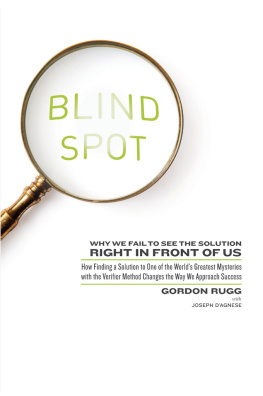Berens Kimberly Nix - Blind Spots: Why Students Fail and the Science That Can Save Them
Here you can read online Berens Kimberly Nix - Blind Spots: Why Students Fail and the Science That Can Save Them full text of the book (entire story) in english for free. Download pdf and epub, get meaning, cover and reviews about this ebook. genre: Religion. Description of the work, (preface) as well as reviews are available. Best literature library LitArk.com created for fans of good reading and offers a wide selection of genres:
Romance novel
Science fiction
Adventure
Detective
Science
History
Home and family
Prose
Art
Politics
Computer
Non-fiction
Religion
Business
Children
Humor
Choose a favorite category and find really read worthwhile books. Enjoy immersion in the world of imagination, feel the emotions of the characters or learn something new for yourself, make an fascinating discovery.
- Book:Blind Spots: Why Students Fail and the Science That Can Save Them
- Author:
- Genre:
- Rating:3 / 5
- Favourites:Add to favourites
- Your mark:
- 60
- 1
- 2
- 3
- 4
- 5
Blind Spots: Why Students Fail and the Science That Can Save Them: summary, description and annotation
We offer to read an annotation, description, summary or preface (depends on what the author of the book "Blind Spots: Why Students Fail and the Science That Can Save Them" wrote himself). If you haven't found the necessary information about the book — write in the comments, we will try to find it.
Blind Spots: Why Students Fail and the Science That Can Save Them — read online for free the complete book (whole text) full work
Below is the text of the book, divided by pages. System saving the place of the last page read, allows you to conveniently read the book "Blind Spots: Why Students Fail and the Science That Can Save Them" online for free, without having to search again every time where you left off. Put a bookmark, and you can go to the page where you finished reading at any time.
Font size:
Interval:
Bookmark:

Copyright 2020 by Kimberly Nix Berens.
All rights reserved. No part of this book may be reproduced in any form without permission from the publisher.
ISBN: 978-1-951412-09-8
Ebook ISBN: 978-1-951412-10-4
LCCN: 2020906709
Manufactured in the United States of America.
Design by Happenstance Type-O-Rama.
10 9 8 7 6 5 4 3 2 1
The Collective Book Studio
Oakland, California
www.thecollectivebook.studio
For Maria,
who taught me to see my blind spots.
I t was a scene with which I am all too familiar: a mother in tears after a school meeting about her childs academic struggles. The meeting was filled with professionals of all types: her childs classroom teacher, the special education teacher, the head of special education services for the district, the school psychologist, the school principal... and me, a behavioral educator who had been providing her child with private reading intervention services every day after school for 40 hours over eight weeks.
One year before this meeting, her child, whom I will call Alex, had been classified as dyslexic by the districts school psychologist, which qualified him for special education services. Alex was in first grade at the time of his diagnosis. He began receiving specialized reading instruction during each school day, where he was pulled out of his regular class to work with a special education teacher. After more than six months of this intervention, mom had seen no improvement in his reading skills. Moreover, Alex had begun to completely withdraw socially and had become increasingly anxious about completing his schoolwork or going to school altogether. It was around this time that the school psychologist and special education teacher informed her that, as a means of reducing his frustration and anxiety, she needed to accept that Alex might never learn to read well due to his disability and that she should give him access to audio recordings of books rather than having him attempt to read.
Fortunately, mom decided to take matters into her own hands at that point, and as luck would have it, she discovered my organization and enrolled her son for private after-school reading intervention. I initially conducted a core reading skills assessment with Alex, an assessment I developed that precisely identifies a childs mastery of essential skills for reading, like identifying the sounds of letters, discriminating between vowels and consonants, and sounding out words. From this assessment, it was clear to me that Alex had never mastered the essential skills for reading. He was unable to identify letter sounds or use phonics to decode unknown words. Moreover, he had gotten really good at some really bad habits bad habits that his teachers had specifically trained him to do, like looking at the first letter of a word and guessing the word based on a picture or context clues. Thus, Alex was an extraordinarily good word guesser. He had learned and become masterful at exactly what his teachers had taught him to do guess words. He then received a diagnosis of dyslexia because, naturally, he often guessed words incorrectly, even though he was doing exactly as he had been taught.
After 40 hours with me, Alex had made significant gains in his fluency in phonics, his ability to use phonics to decode unknown words, and his overall reading fluency. He had begun reading with mom at home and had started reading things in his natural environment like road signs, menus at restaurants, and billboards. He had also become more confident and was engaging in the world again laughing, smiling, coming out of his shell. He was finally experiencing success as a reader. Mom was thrilled with his progress. However, I was still trying to unwind his word-guessing history. Getting rid of old habits and replacing them with effective reading skills requires lots and lots of practice. Thus, we needed to increase his hours to ensure that we could accelerate his skills rapidly enough that he could begin the next school year on grade level. Moreover, we needed to make sure that he wasnt being provided with reading intervention that reinforced his word-guessing habits.
In order to manage an increase in hours with me, mom asked for the meeting to request that he be allowed to discontinue the special education services with the school and attend sessions with me instead, as a modified school day. Since Im an educator trained as a behavioral scientist, I arrived at the meeting with a wealth of data showing his progress, as well as data that clearly indicated how his old word-guessing habits were interfering with his mastering effective reading strategies. We presented our case to the team and held our breath. The rest of the meeting was no different than all the other school meetings of this sort I have attended throughout my career. The data were irrelevant. My expertise was irrelevant. His progress wasnt real. Moms heartfelt pleas fell on deaf ears.
From the teams perspective, Alex was a dyslexic and would always be a dyslexic. Any progress he was making with me would never show up in the classroom. My methods were confusing him because they werent the same as those used by his teachers. I was the problem. My methods were the problem even though the data clearly indicated otherwise. The members of that team believed that Alex was disabled, and they also believed in the way they were teaching him. The meeting became an ideological debate, with the evidence regarding the effectiveness of my work with him and the progress he had made ignored and, worse, erroneously refuted.
So, there mom and I were in the parking lot after an excruciatingly frustrating meeting. They had denied her request to discontinue the ineffective reading intervention he was receiving at school as well as her request for a modified school day to attend more sessions with me. Mom was beside herself. As we walked to our cars, she stopped me and with hopeless fury asked, Why dont they understand this? Why cant they see that what youre doing is working? Why dont more people know about your methods, your science? How can this continue to be ignored? I hugged her, sharing in her pain and frustration. I had experienced scenes like this one countless times in my career, but it never got any easier. I assured her that we would continue to make progress, that there was absolutely nothing wrong with Alex, that he just needed to master basic skills with repeated, reinforced practice. I told her, Alex will be a proficient, confident reader you have my word on that. Before we got into our cars, she turned to me and said, You know what you need to do? You need to write a book. The world needs to know about this.
I wrote this book because, like Alexs mom, I am angry. I am fed up. I am exhausted by the incessant spinning of wheels. I am heartbroken by the countless children I encounter who have been tragically failed or mediocritized by our educational system a system that fails to effectively educate more than 60% of American students by the time they graduate. I am devastated after my conversations with parents who feel overwhelmed and confused about how to help their children simply survive school. I am outraged for every American teacher who is charged with the task of effectively educating our nations youth without ever being provided with training in the scientific tools required to do so. I am sick and tired of hearing about yet another educational fad or reform effort that has absolutely no chance of improving educational practices.
However, an answer to our educational crisis does exist. I am one of a group of scientist-educators who actually have an answer, and we have had an answer for a very long time. A science exists that allows children to learn as individuals even though they must be educated in groups. A science exists that avoids senseless labels that sentence children to lifetimes of failure and mediocrity.
Next pageFont size:
Interval:
Bookmark:
Similar books «Blind Spots: Why Students Fail and the Science That Can Save Them»
Look at similar books to Blind Spots: Why Students Fail and the Science That Can Save Them. We have selected literature similar in name and meaning in the hope of providing readers with more options to find new, interesting, not yet read works.
Discussion, reviews of the book Blind Spots: Why Students Fail and the Science That Can Save Them and just readers' own opinions. Leave your comments, write what you think about the work, its meaning or the main characters. Specify what exactly you liked and what you didn't like, and why you think so.

